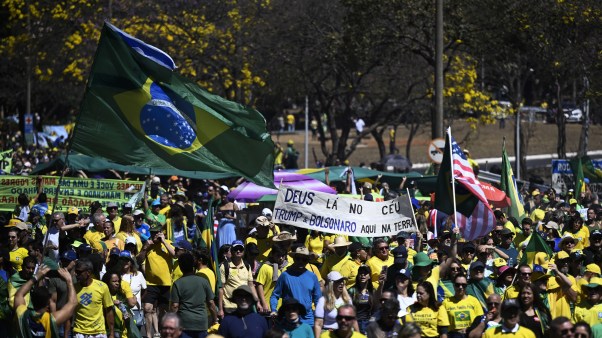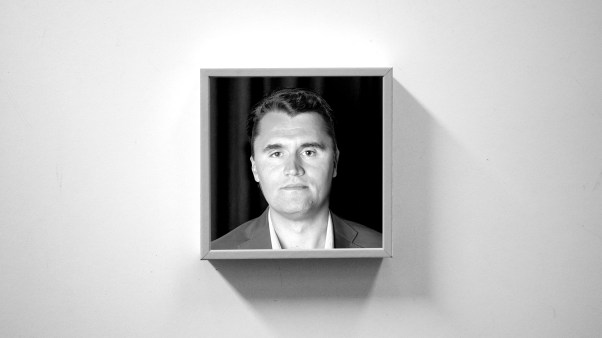Up until what seems like just yesterday, Christians had to show up in church to hear the sermon on Sunday morning.
It happened in real time, once a week. If you missed it, you might get the highlights from someone else, but if not, you had to wait until next time. Part of the motivation to get out the door each Sunday was getting to participate in a completely unrepeatable moment in time.
This is why churches need to rethink the recent trend in making sermons available online. Churches, like any other institution, cannot simply adopt the latest communication technology with impunity. There are profound consequences for doing simply what is possible and popular in our culture without considering what is prudent. But for the church, unique among all institutions, this is a particularly serious problem.
Of course, churches’ motivations are sincere: They want to provide preaching for the shut-in, the elderly, the infirm, and those incapable of traveling. They also want to spare you the solitary hell of a daily commute that amounts to hours stuck in traffic each week. (For the few who sincerely can’t make it on Sunday, pastors should also be visiting them in person, bringing the Eucharist, and perhaps dropping off a text of the sermon or a USB drive of the sermon.)
In some cases, churches could stream a message live for the appointed time of the sermon itself, but the effect on the user should be, like the kids say these days about their favorite concerts: ”You had to be there.”
Sermon podcasting reveals a utilitarian misunderstanding of how our messages create a sense of meaning. The sermon is not an interchangeable part that can be removed from the context of worship while still maintaining its power, its authority, and its efficacy. It retains at most one of these, diluting or eliminating the other two.
If value is a function of scarcity, then we must understand just what scarcity means. Scarcity can either be real and produce actual value, as in gold, virginity, and integrity, or it can be manufactured and produce perceived value, as in Pokémon cards, bitcoin, and diamonds. What the church has done successfully for millennia is to produce perceived value—through rules and restrictions, limitations and taboos, thou shalts and thou shalt nots—until its users come to recognize that this perceived value is really an actual value.
For churchgoers to perceive value, churches have to maintain the scarcity of the once-a-week, in-real-life sermon experience. When pastors push their sermons far and wide via podcast, they unintentionally devalue the message they have worked hard to create and communicate. They remove the sermon from the time, context, and body of the liturgy where it belongs.
By giving away their best material online, churches may actually be incentivizing their crowd not to attend. It’s not a coincidence that the 2015 Pew Research Center’s Religious Landscape Study found the greatest drops in attendance among the young, digitally connected generation.
Moreover, their number one reason for skipping church was not theological differences but boredom. Your smartphone is not boring; it has an infinity of entertainments, tools, distractions, and pleasures all within a few milliseconds of your anxiety.
By podcasting your sermons, you make it just one more of the billions of entertainment choices a user has, and you send the unintentional message that church exists for the same ontological reason as everything else in the mass culture: to be mediated. And pastors stand little chance of bringing a bored generation back through a medium that will reach them completely out of context, out of sync with the week’s spiritual rhythm, and out of touch with the local community of people that know and care about them.
What churches see as extending the reach of the gospel actually amounts to another element of “time-shifted” media to consume. In effect, podcasting a sermon (or posting services to YouTube or the church website) turns the gathering of God’s people into another hour of content for audiences, right alongside their DVR-ed TV shows and other entertainment.
Time-shifted media exists by virtue of the explosion of media choices in the last 30 years. This explosion, and the subsequent time-shifting of all content, is one of the primary reasons why we no longer have any semblance of a common culture: There can be no watercooler conversation about watching TV last night when no three people watch the same thing anymore. The church is—could be, and should be—a form of resistance to the spirit of the age. Having a common church life can, in small, local, and yet very real measures, produce a micro-culture that produces commonality with other, similar micro-cultures.
After all, the church is not a media content production agency offering a 42-minute spectacle in exchange for 18 minutes of advertising. The church offers the truth—a chance to participate in God’s created-from-the-beginning cycle of work and rest, sacrifice and praise. The whole thing is existentially, necessarily, theologically, philosophically, psychologically, and ontologically embodied. And at the end of the day, it is God who commands attendance, not us.
But wait, you might be thinking: When two or more are gathered together on Facebook, is the Lord there? When a sermon is reproduced digitally, doesn’t it carry with it the same movement of the Holy Spirit?
By its very nature, podcasting the sermon reduces the entire liturgy and purpose of church as the corporate meeting of Christ’s bride to simply “listening to a sermon.” Despite congregations’ best intentions to serve those who can’t or simply won’t show up on Sunday, their efforts sell these audiences short.
It’s hard to remember that pastors’ primary role is not that of celebrity entertainer, cult of personality, content producer, 24/7/365 news and information source, ironic-hipster pundit, or podcaster. Their primary role is being ministers of the gospel.
Pastors perform a service that has its roots in the church calendar, which has its original roots in the biblical calendar of the appointed days and times of the Lord, specified by Leviticus 23. This text is and should be the urtext for pastors and the weekly observances they lead.
When pastors podcast their sermons as a means to expand the reach of their gospel message, they end up promoting spiritual malnourishment instead. It’s like teaching your children to grab a quick snack instead of showing up for family dinner. Promoting sermon recordings sends the message that the congregation can just as meaningfully hear the message in the car, the bathroom, or the train commute as in church on Sunday—which cheapens the value of the sermon and the church gathering.
Disembodying the message and the congregation keeps pastors from plausibly promoting the embodied message of our embodied Lord and Savior Jesus Christ. By podcasting the content of the sermon, churches unwittingly promote the same cultural gnosticism of digital media's disembodied form that is itself a primary driver of declining church attendance.
Now really is a good time to ask, “What would Jesus podcast?” The answer is: nothing. In fact, Jesus was so against any form of mediation that he never did anything unless he was there, live, in person, embodied, to see to it personally.
He never once wrote anything down. He never once asked any one of his disciples to be the group secretary or disciple's scribe. And on several occasions, he actually commanded the recipients of his miracles to “tell no one what the Lord has done for you.” The actual scribes—the legalizers and conceptualizers—he could never get along with, and he got under their skin so much they conspired to kill him.
What did Jesus know about the relationship between embodiment and communication, between being there in person and a totally clear reception of the message? There was no second seating for the Sermon on the Mount. There were no repeat performances, so far as we know, of the crowd’s favorite miracles, and yet there was just the opposite—a rebuke to those who asked for a sign with the reproach, “A wicked and perverse generation asks for a sign. You will receive no sign except for the sign of Jonah.”
And yet, Scripture tells us, if all he had said and done were written down, not even all the books or libraries in the world could contain it. How did our Lord know that value was a function of scarcity? How did he know that saying the right words, at the right time, really was all the people needed to hear, and that they didn’t need to hear it again and again and again throughout the week, month, or year?
Famed communication scholar Albert Mehrabian pointed out that more than half—55 percent—of a message comes through body language. The rest gets communicated through tone of voice—38 percent—and the words a speaker uses—just 7 percent. Even podcasting a sermon only offers listeners 45 percent of what a pastor says. (Think of the moments on an audio-only podcast when the audience is laughing but you don’t understand why—you’re missing the context, scene, expression, or movement that made it funny.)
All forms of media change the content’s original meaning. All media reverse into the opposite of their intended purpose when pushed to extremes, the way a car slows down to walking speed when participating in a traffic jam. Thus, the church needs to know that the podcast sermon will follow this same pattern, despite the producers’ best intentions.
As they strategize about digital distribution, a church should ask: Where is the line that we shouldn’t be crossing? How do we produce the benefit of the podcast sermon without producing the unintended side effect of disinviting the congregation from bodily assembly? That is a question that deserves a much richer, longer, and more nuanced conversation.
For now, consider keeping the sermon sacred and contextualized, just as we do with the sacraments. If the Eucharist were suddenly dished out at a fast food drive-through or available for instant delivery on Amazon, Christians would be outraged over it being cheapened and downgraded in its cosmic and metaphysical significance.
So it is with pastors’ sermons as well. Keep them to their appointed time.
Read Mercer Schuchardt is associate professor of communication at Wheaton College. He and his wife, Rachel, have ten children.









